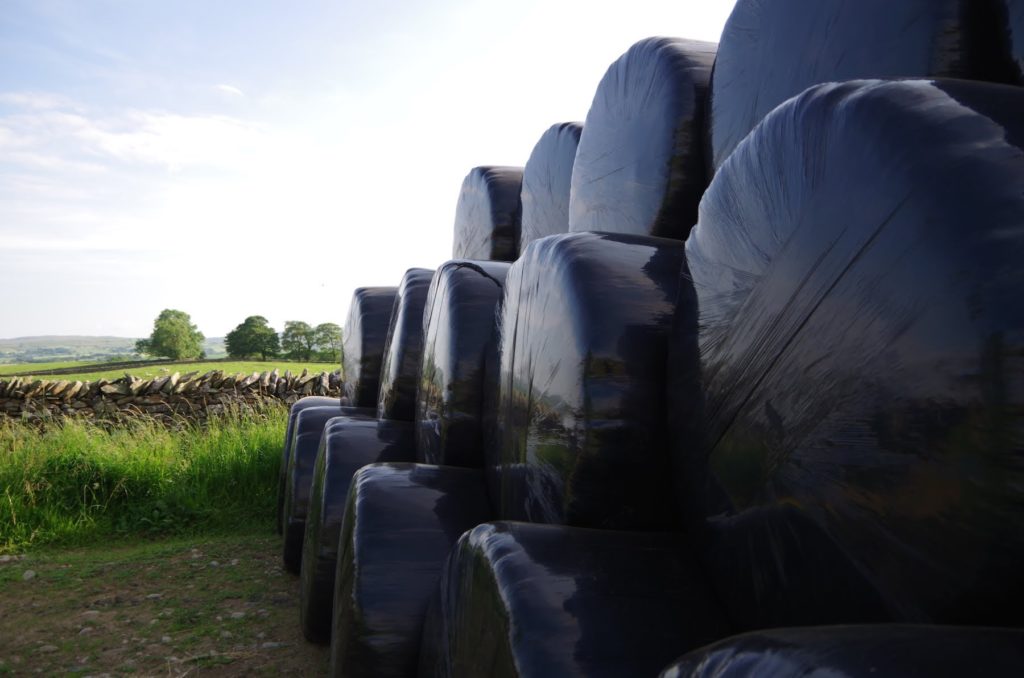Handling And Stacking Silage Bales
3 June 2020When making silage bales it worth taking extra care around handling, wrapping and stacking of bales to avoid costly nutrient losses and some harmful moulds that can cause issues with livestock.
Tips to minimise spoilage in silage bales:
- The denser the bale the better, this will vary depending on the baler used but where there is less air in the bale a better fermentation occurs keeping the nutrients in the silage.
- Minimum of 4 layers of wrap for wet silage, 6 for drier silage (IGERs research showed fermentation benefits and more effective barrier to oxygen with 6 layers, hence less wastage (8 layers was not cost effective).
- Every time a bale is spiked or moved oxygen gets in, even before wrapping. Keep handling to a minimum and if bales need to be moved try and do it within 8 hours of wrapping before fermentation really starts. Even using a squeeze grab allows oxygen to enter once the grab is released.
- If bales are wet, it is always better not to stack them at all and have them in single rows but in many cases with large numbers of bales, this is not practical. If bales are wet stacking two high on their round end is okay, three high if bales are drier. Above this height stacks can become unstable and cause a safety issues as well as nutrient losses due to misshapen and squashed bales.
- Avoid storing wet bales on their can (flat end on the ground). If wet bales stored in this way the stack will likely collapse causing a safety issues and also nutrient losses due where bales have moved. On the flat side is a good way to store drier bales, two high is advisable, overlapping the upper bales half on half on the lower bales.
- Think about the site selection ensuring it is dry and level (for safety) and that bales are protected from birds, rodents etc.
- If bales are all to be used on one site is tube lining an option rather than individual bales? This saves on plastic and there is not the losses or safety concerns of stacking bales especially if they are wet.
Mary Young, mary.young@sac.co.uk
Sign up to the FAS newsletter
Receive updates on news, events and publications from Scotland’s Farm Advisory Service

